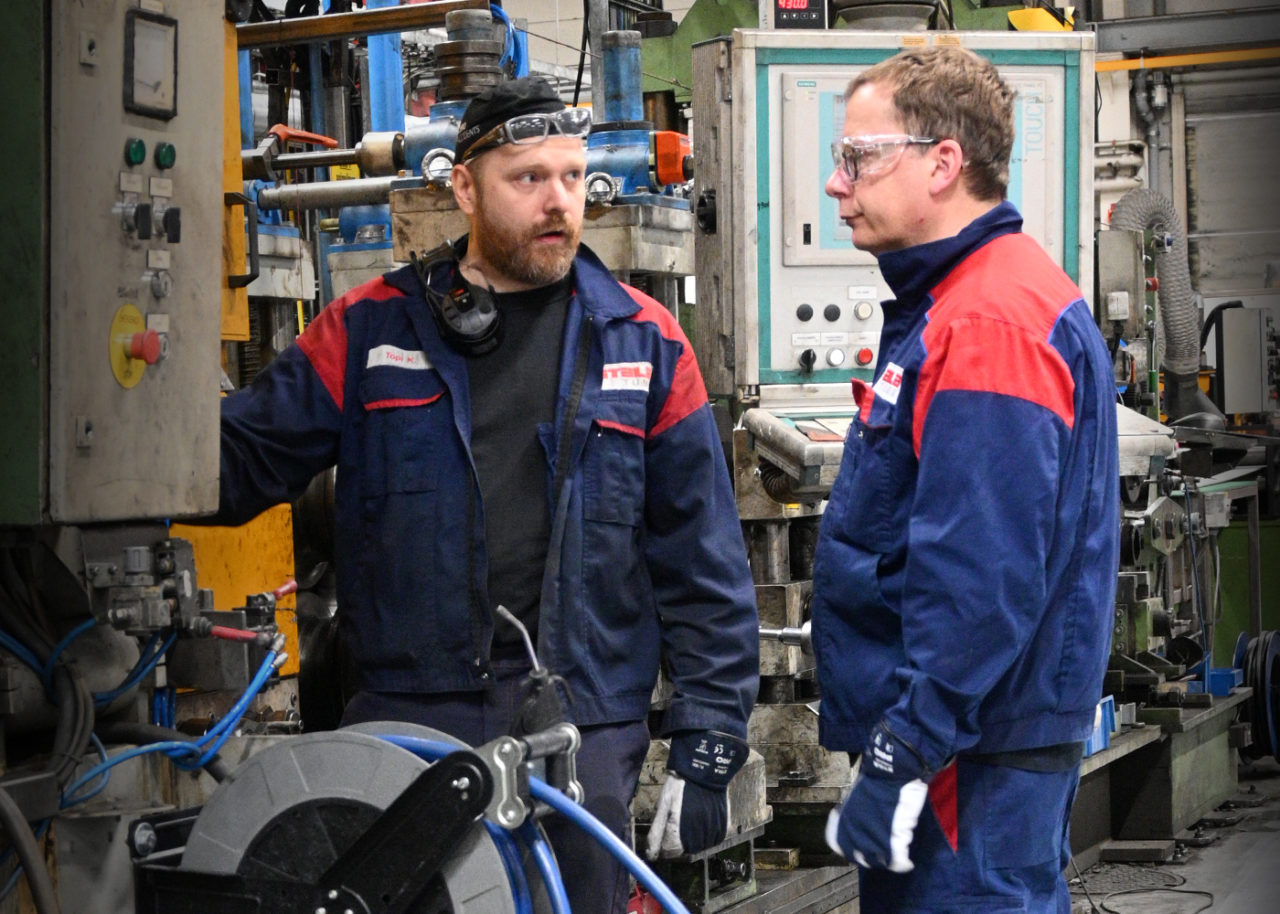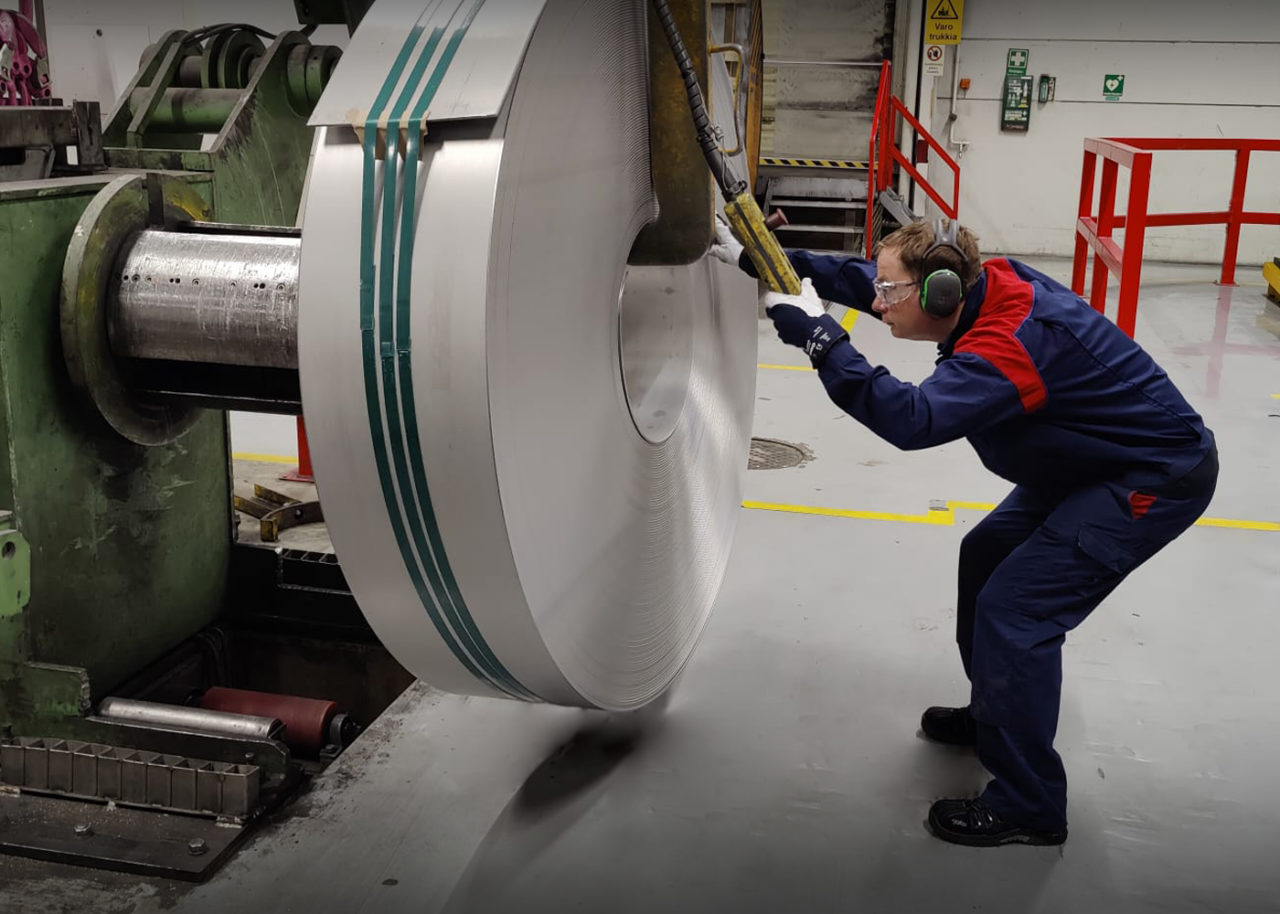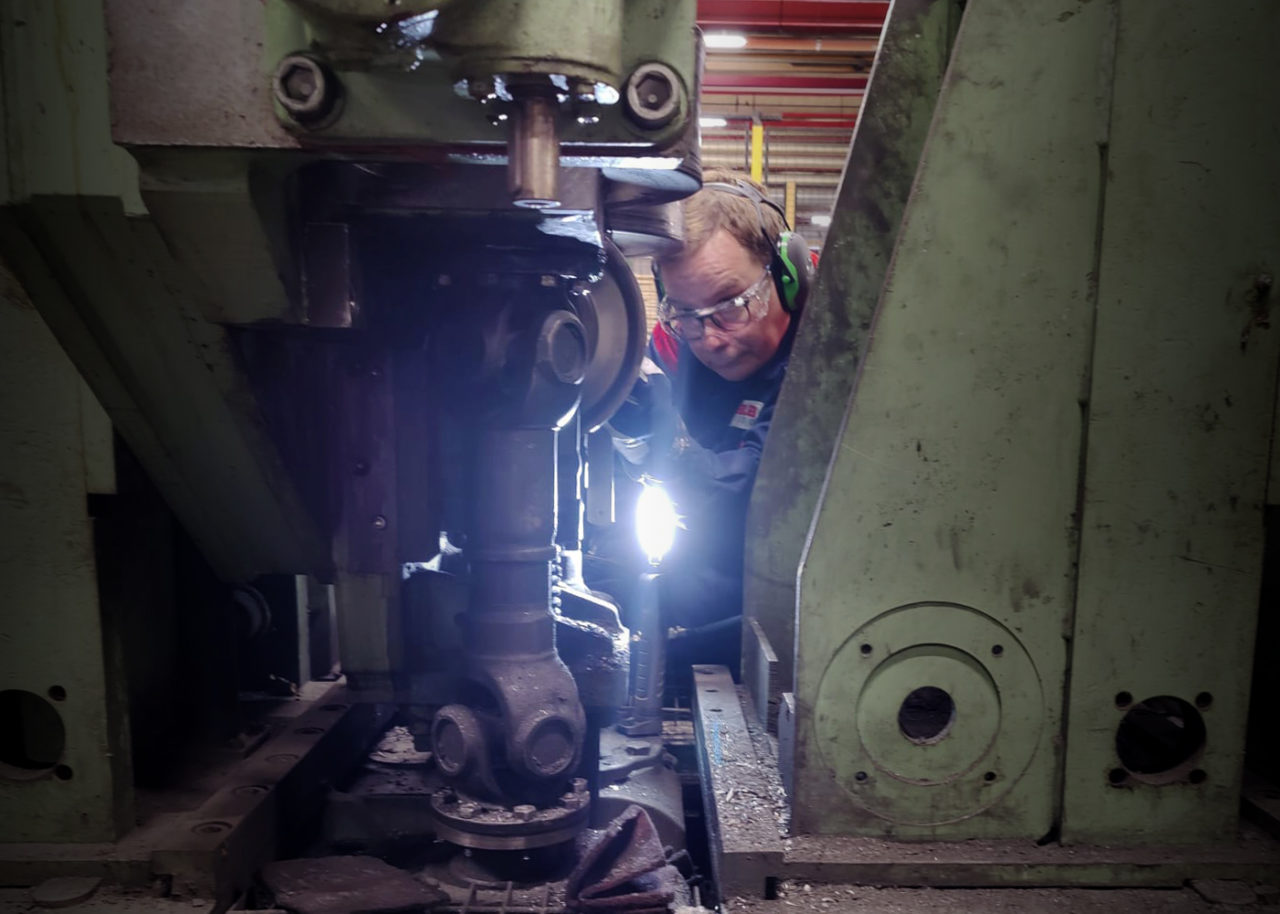Our CEO Sami Packalén wanted to deepen his understanding of the production process and the operators’ daily work at the factory, even though he already has solid experience in the different organisational sectors. His interest in the company’s everyday operations sparked the idea of organising ground-level training for the CEO at the factory, and the plan was ultimately cemented with Chief Shop Steward Topi Karppinen. Right from the start it was agreed that the process would involve actual orientation instead of simply observing the work from the sidelines. The hands on -agreement was upheld, and the CEO’s working week at the factory included three evening shifts and one night shift under Topi’s leadership. Sami got right down to business and worked on lines 9 and 11.
This was not Sami’s first rodeo, as the road to his current position began as a summer trainee at Stalatube in the late 1990s. In 2001, Sami worked on projects related to production planning. After development projects, his career path led from the temporary post of Procurement Manager to a sales position in 2003. In 2020, Sami was appointed as CEO after holding the position of Sales and Marketing Director. However, despite his long career, this was Sami’s first time in an operator’s shoes.

Operators’ work is physical and varied
Contrary to what some may think, there is no sitting around at the Stalatube factory. The operators do much more than just monitor the machines at work; instead, they are active throughout the different stages of the production process. Activities such as putting items in place, lifting and moving the parent reels and tube bundles, bundling and measuring tubes as well as taking corner radius measurements require a lot of moving around within the factory premises.
Although the factory is equipped with lifting gear for heavy loads, tasks like ensuring that the correct settings are used require physical fitness in addition to mental alertness.
“There was no need to hit the gym that day, as I was sweating profusely and was easily able to meet my daily goal of 10,000 steps during the shift,” Sami laughs.
The diversity of the operators’ work surprised even the experienced CEO. In fact, Sami found the settings to be the most challenging part of the job due to the many variables. It is impossible to draw up instructions that would cover everything. Moreover, using the correct settings requires a lot of experience. The ground-level training process also involved several positive experiences. Sami’s hand-welded strip joint was driven through the machine.
“I was incredibly nervous, but the weld held up,” Sami rejoices.
Appreciation for the operators’ work
The ground-level training gave Sami a deeper appreciation for the operators’ work and a more thorough understanding of the production process than all his years at the company put together. In fact, the CEO decided that this would not be his last ground-level training. Instead, he felt it might be a good idea to refresh his memory by working a shift with the operators once per quarter.
“When you get to see and do the work yourself, you get a comprehensive idea of the arduousness and importance of the work,” says Sami.
Sami praises the attitude of the operators and says they have a tremendous amount of expertise and a top-notch approach to the work. Everyone cares about productivity, and the machines are kept running at all times. If a line stands still, everyone must devote their skills and resources to rectifying the situation. All tools must be kept in good condition. If there is a problem with a machine, everyone lends a hand and aims to resolve the situation together.
“Getting the operators involved in production development is a key issue. Surely, there are no better experts in the line systems than the persons who use the machines for eight hours a day, all year round,” Sami concludes.


Ask us more
Sami Packalén
CEOStalatube Oy (Finland)